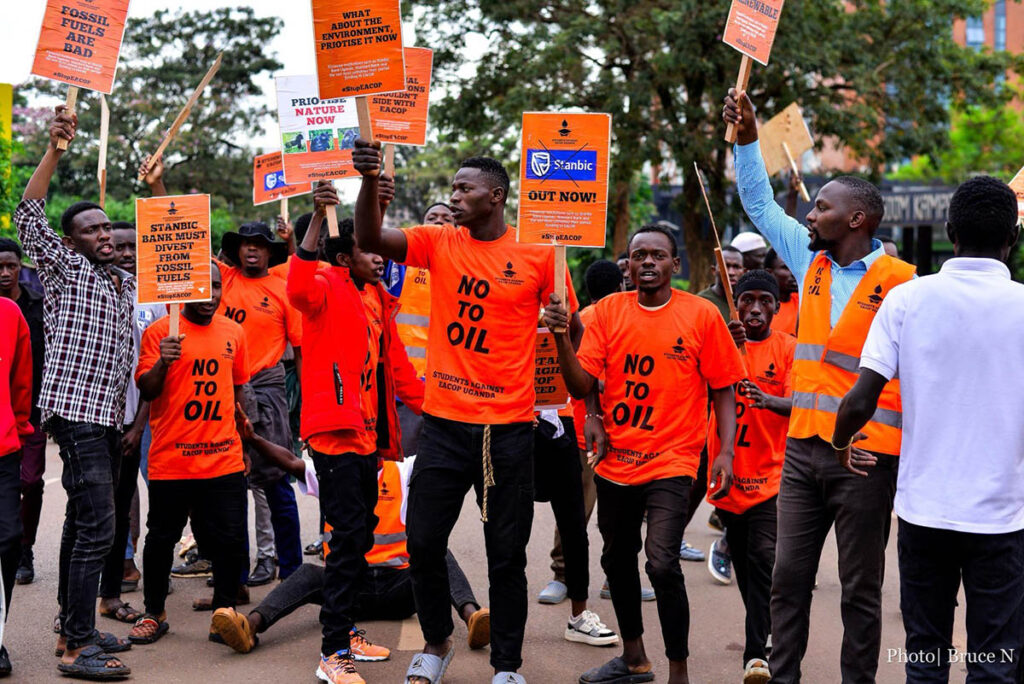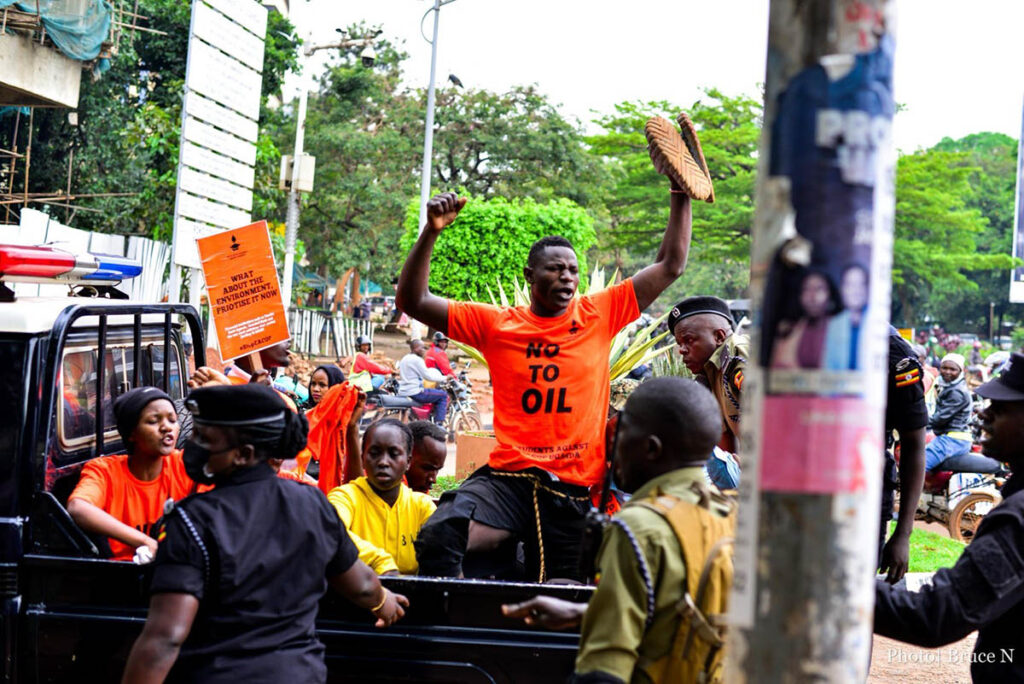Tensions flared in the heart of Uganda’s capital this morning as police, aided by the Special Forces Command (SFC), arrested a group of environmental activists protesting against the financing of the controversial East African Crude Oil Pipeline (EACOP).
The activists, organised under the banner of “Students Against EACOP Uganda,” were marching toward the head offices of Stanbic Bank at Crested Towers in Kampala when law enforcement swiftly intervened.
The protest follows an announcement just days ago that a consortium of financial institutions—including Stanbic Bank, KCB Bank, and an Egyptian bank—had confirmed their commitment to funding the massive oil pipeline project.

The 1,443-kilometer EACOP, set to transport crude oil from Uganda’s Lake Albert region to the Tanzanian port of Tanga, has sparked fierce opposition from environmentalists, who argue that it poses significant threats to ecosystems, communities, and efforts to combat climate change.
Eyewitnesses at the scene reported that the student-led demonstration was largely peaceful, with participants holding placards and chanting slogans decrying the banks’ decision to finance the project.
However, tensions escalated when security forces moved in to break up the protest, detaining several activists and bundling them into police vehicles.
“The police acted with unnecessary force,” said one protester who managed to evade arrest.
“We were simply exercising our right to peaceful protest against a project that endangers our environment and future.”

Authorities have not yet disclosed the number of activists arrested or the charges they may face.
The involvement of the SFC, a unit primarily responsible for protecting the President and key installations, has raised eyebrows, with critics questioning why elite forces were deployed to quell a student-led demonstration.
Environmental activists and human rights organizations have long criticized EACOP, arguing that it will lead to the displacement of thousands of people, destroy critical habitats, and increase carbon emissions at a time when the world is moving towards cleaner energy alternatives.
The Ugandan government, along with its partners in the project—including TotalEnergies and the China National Offshore Oil Corporation (CNOOC)—has defended EACOP, citing its potential economic benefits, including job creation and increased government revenues.
In response to the arrests, global environmental organizations have begun rallying behind the detained activists, calling for their immediate release.

Climate advocacy groups have vowed to escalate their opposition to the project, urging international financial institutions to withdraw support and demanding greater accountability from those involved.
The incident marks yet another flashpoint in the ongoing debate over Uganda’s oil industry. With both supporters and opponents digging in their heels, the battle over EACOP’s future is far from over.
Today’s arrests only underscore the growing tension between economic development ambitions and environmental conservation efforts in the region.

